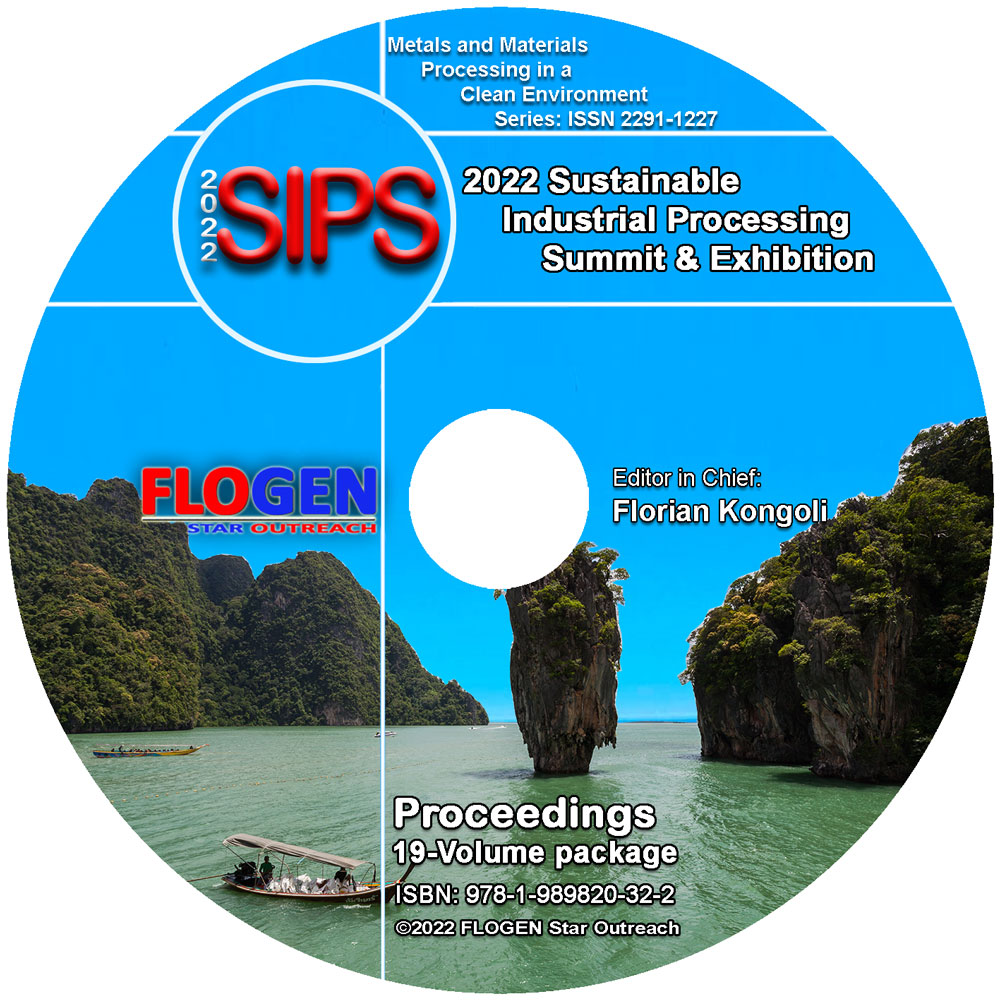2022-Sustainable Industrial Processing Summit
SIPS2022 Volume 6 Macdonald Intl. Symp. Corrosion and Surface & Interface Engineering Coatings for Extreme Environments
| Editors: | F. Kongoli, R. Singh, F. Wang |
| Publisher: | Flogen Star OUTREACH |
| Publication date: | 22 December 2022 |
| Pages: | 91 pages |
| ISBN: | 978-1-989820-44-5(CD) |
| ISSN: | 2291-1227 (Metals and Materials Processing in a Clean Environment Series) |

CD shopping page
The Anthropogenic Global Warming Hypothesis and the Causality Principle
Digby Macdonald1;1UNIVERSITY OF CALIFORNIA AT BERKELEY, Berkeley, United States;
Type of Paper: Regular
Id Paper: 382
Topic: 66
Abstract:
The scientific viability of the Anthropogenic Global Warming Hypothesis (AGWH) has been evaluated in terms of the Causality Principle (CP), which is the foundation of scientific philosophy. Based on the available experimental data, the relationship that is expressed by the AGWH (that rising CO2 concentration in the atmosphere is responsible for global warming (GW) as reflected in the rise in temperature) is noncausal because the alleged cause (the change in the atmospheric [CO2]) lags the change in the temperature in the experimental record, in violation of the CP. Since the AGWH represents the foundational hypothesis of current climate science (CS), it is concluded that CS and the models that have been developed, based on the AGWH, to predict future GW lack a valid scientific basis.
In assessing this issue, the colloquial form of the CP is most appropriate especially when presenting it to a general audience. In this form, the CP may be expressed as: “Every effect has a cause, and the cause must precede the effectâ€. Furthermore, “for a complex system comprising a series of processes, if any step is non-causal then so is the entire processâ€. It is important to note that the CP is independent of the mechanism of the change just as are the Laws of Equilibrium Thermodynamics for which there exists a close parallel. If this were not the case, a process may appear to be causal via one mechanism but noncausal via another, even though the initial and final states or the declared cause and effect had not changed; an intolerable conflict and one via which al processes could be declared to be “causal†for convenience and in defiance of common sense.